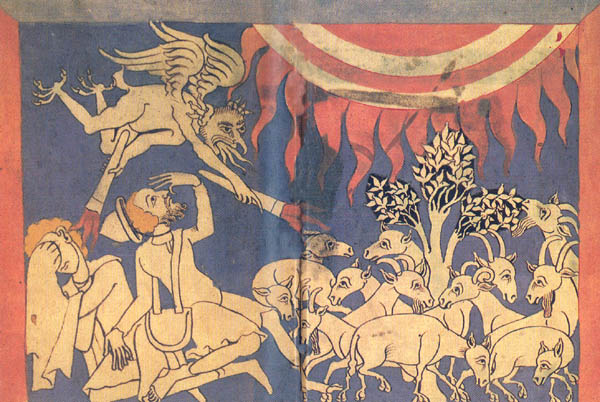Image Details

Bridgeman Art Library
“The fire of God fell from heaven and burned the sheep and the servants, and consumed them; I alone have escaped to tell you!” the breathless messenger tells Job, as the first test, the destruction scene, of Job’s property and children, gets under way (Job 1:16). Sheep cower and helpless shepherds collapse as the gruesome winged figure of Satan ignites them in this medieval Latin miniature housed in the Bibliotheque Nationale in Paris.
One sheep, far right, impassively nibbles at a tree, oblivious to the chaos around him. Perhaps the medieval illustrator is suggesting the same theological point that Freedman stresses: The Book of Job describes an earth thrown into moral chaos and confusion by heavenly events to which we, readers, are privy, but to which the earthly characters in the story are not.
After this first ordeal, Job withstands at least three more tests: severe inflammation of his body; his three friends’ devious arguments demanding that Job repent for sins he never committed; and the stranger Elihu’s six-chapter-long oration, which, Freedman suggests, brings Job to the point of resignation and repudiation. Then, and only then, does God intervene.
